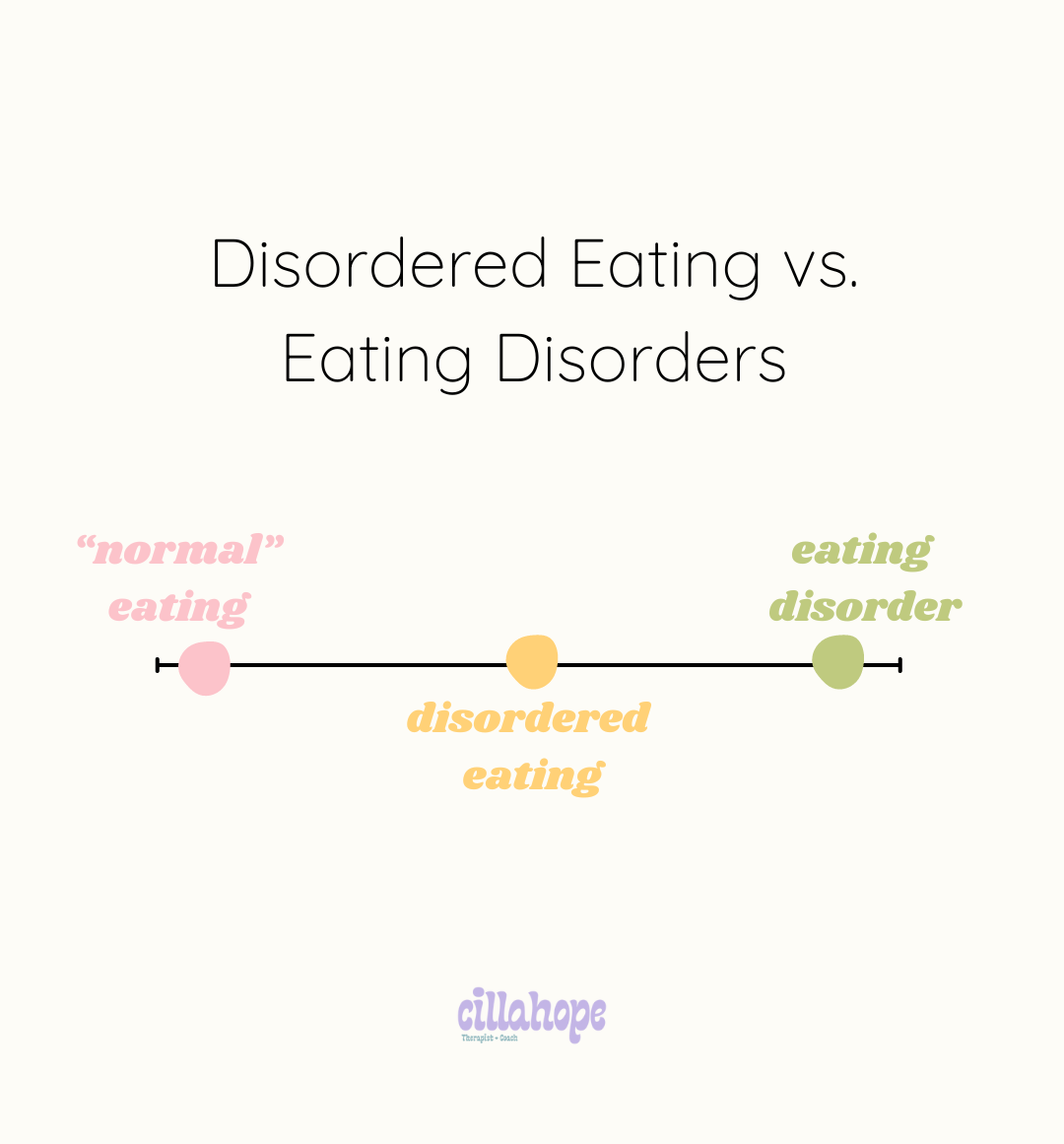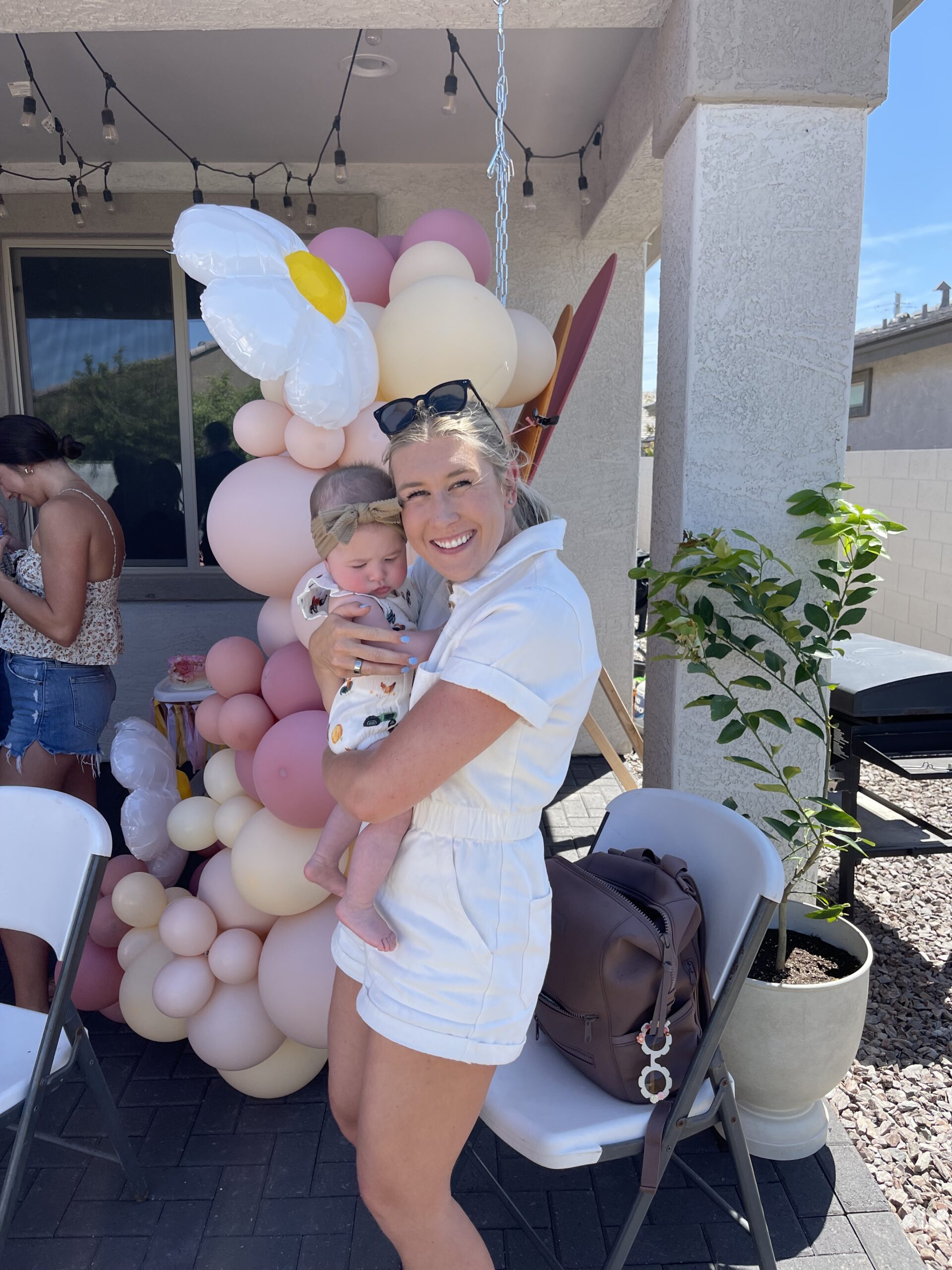The Difference Between Disordered Eating and an Eating Disorder

Written By:
Category:
Cilla Moore
Surprisingly, there is a clear distinction between disordered eating and an eating disorder. Disordered eating falls within the spectrum that lies between “normal” eating and full-blown eating disorders. The primary distinguishing factors between the two revolve around the levels of intensity, severity, and frequency. It is important to note that disordered eating may exhibit similarities to eating disorders, such as restriction, binge eating, and compensatory behaviors.
Disordered eating can be described as a behavior pattern that does not meet the specific criteria for an eating disorder.
If Disordered Eating is not an Eating Disorder, then What is the Problem?
Although disordered eating doesn’t fulfill the complete diagnostic criteria for an eating disorder, it is recognized as one of the most significant risk factors for the development of such disorders (NEDC, 2023). According to recent research, eating disorders exhibit the highest mortality rate among all mental health disorders. These behaviors are not merely a lifestyle choice; they pose a serious threat to life (Auger, N., Potter, K. B., et al. (2021). Anorexia Nervosa and long-term risk of mortality in women. National Institutes of Health, 448-449).
What Can Disordered Eating Look Like?
Disordered eating can look very similar to an eating disorder. As earlier mentioned, the key difference is the intensity, severity, and frequency. These are just a few examples to explore:
- Trying several diets to lose weight
- Yo-Yo dieting
- Weight fluctuations
- Feeling out of control when eating
- Labeling your relationship with food as an “obsession”
- Eating for comfort, not hunger
- A distorted body image
- Measuring self worth based on body image + weight
- Strict rules with food
- Strict rules with movement
- Cutting out specific food groups from diet
- Using movement to burn calories/manipulate body image
- Fasting, skipping meals
But, Why is Dieting Considered Disordered Eating?
Dieting is often viewed as disordered eating due to its reliance on deprivation, linking self-esteem to food selections and body image. Engaging in a diet triggers psychological, physical, and socio-emotional reactions in response to the deprivation it imposes.
Disordered Eating and the Influence of Diet Culture
The phenomenon of disordered eating is significantly influenced by the pervasive presence of diet culture. This culture promotes unrealistic body ideals, encourages restrictive eating patterns, and attaches self-worth to food choices and body image. As individuals become entrenched in diet culture, they may experience psychological, physical, and social-emotional effects stemming from their relationship with food and their bodies (sounds familiar to the effects of dieting, right?).
As a general guideline, if you recognize symptoms of disordered eating, it is advisable to seek support from a qualified professional who can effectively address your current symptoms.
Cilla (IG: @itscillahope) is a licensed ED + Body Image therapist and Future Certified Intuitive Eating Counselor + Nutrition Coach based in Indianapolis! She has built a recovery community that is passionate about breaking free from any spectrum of disordered eating and finally stop talking negatively about your body!
Ryann Nicole
Licensed Therapist, Certified Nutritionist, and Virtual Wellness Coach
Ryann is a licensed therapist and virtual wellness coach who has assisted individuals worldwide in establishing a healthier relationship with food and their bodies.
Are You Ready to Heal Your Relationship With Food?
I understand—it can be overwhelming to figure out where to begin. Let's simplify things and have you start right here:
Why Am I Overeating?
First Steps To Stop Binge Eating
The Food Freedom Lab Podcast
FREE QUIZ
FREE GUIDE
Podcast
the food freedom lab podcast




